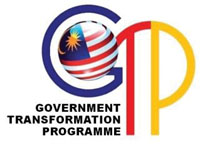By Marzuki Ahmad
In the previous article published in the last issue, the discussion revolved around identifying the possible opportunities related to franchising in Economic Transformation Plan (ETP) which identified 12 National Key Economic Areas (NKEAs).
The 12 areas mentioned are:
• Oil, Gas and Energy
• Palm Oil
• Financial Services
• Tourism
• Business Services
• Improving Electronics and Electrical
• Wholesale and Retail
• Education
• Healthcare
• Communications Content and Infrastructure
• Agriculture
• Greater Kuala Lumpur
In this article, the discussion will attempt to look at the scenario of the market in the context of successful implementation of the ETP with particular skew towards business opportunities especially in franchising.



The probable scenario – based on the key targets set in the ETP
- Increase in Gross National Income per capita from RM23,700 (2009) to RM48,000 by 2020.
In simple terms, this 6 percent growth of the GNI can be translated as the growth of earnings for business entities and individuals. Loosely inferred, there will be additional ringgit being generated as income for these two main groups.
Additional earnings for businesses mean that there will be additional profits. It is anticipated that businesses will largely reinvest in the market and expand their business this additional income and profits so as to exploit further the growing national income.
As for the individuals, the additional income will have extras to save and to spend. The ringgit amount saved or spent will depend on the lifestyle adopted that is befitting the individuals that are part of an advanced economy. In other words, they now have the extra spending power and have a more discerning taste.
- Service economy – from 58 percent to 65 percent
The base from which the service economy moves up the scale to 65 percent means an increase of 7percent. This shift means the economy is becoming mainly business-to-business oriented. The thrust had been identified as at least in two NKEAs i.e. the financial services and the business services sectors. Other business services are also required by the other economic areas as well.
As for the consumers, the simple services required for their new ‘advanced’ lifestyles may be represented by simple chores being contracted or outsourced to services providers. Such services may include trimming the lawn, washing the car, cleaning the homes, grooming their pets, personal grooming; better education for their children, health related etc.
- 3.3 million jobs created – with a shift to middle and high income brackets
Having an increase in the population being employed means that these individuals look forward to spending their hard earned salaries on activities that represent a better lifestyle – spending on good food; going for vacation; keeping fit; reinvesting for future financial security; personal communications and entertainment, etc.
- Tourism – Triple the GNI contribution to 104 billion in 2020 from 37 billion in 2009
The main themes for the ETP are identified as affordable luxury in shopping; nature adventure; family fun; events, entertainment, spa and sports; and business tourism. Significant business opportunities lie in the retail and services offered for the tourists and franchising opens prospects that are more readily accepted by the tourists due to its high degree of consistency in delivery standards and established brands.
- Greater KL/Klang Valley (KV) – GNI contribution of 650 billion per year (an increase 2.5 times from current level of 258 billion in 2009). Increase in population from 6 million to 10 million.
- The increase in population coupled with higher earnings already means that the ringgit spending amount of the population in the Greater KL/KV will increase tremendously. This will be boon for retailers.
At the same time the profile of the population will also comprise of high net-worth individuals made up of expatriates, professionals, etc who are employees of investing multinational companies. These are individuals who are familiar with international brands; hence, it means well for incoming established franchise businesses.
Central to the ETP – a franchising perspective
As for opportunities for the franchising business sector, the essential NKEA is in the Wholesale and Retail businesses. In this aspect three strategic themes had been identified that will ‘modernise; globalise and revolutionise’ the wholesale and retail business via 13 entry points projects (EPPS).
Briefly the EPPs are identified under the strategic themes as follows:
MODERNISE
EPP 1: Increasing number of large format stores like hypermarkets, superstores and departmental stores;
EPP 2: Helping small retailers to modernise via Programme TUKAR;
EPP 3: Modernising and amalgamating various local market formats into large-sized Pasar Komuniti;
EPP 4: Increasing quality and service levels of automotive workshops; and
EPP 5: Developing Makan Bazaars – large, premium, professionally-managed food centres.
GLOBALISE
EPP 6: Developing 1Malaysia Malls, operated by Malaysian players, in emerging markets like Vietnam and China;
EPP 7: Developing a virtual mall; and
EPP 8: Facilitating local companies to acquire stakes in foreign retail businesses.
REVOLUTIONISE
EPP 9: Removing import duties on all finished goods (except automotives and so-called ‘sin products’, e.g. tobacco);
EPP 10: Setting up wellness resorts;
EPP 11: Organising unified Malaysia sales;
EPP 12: Intensifying transformation of Kuala Lumpur International Airport KLIA into a retail hub; and
EPP 13: Developing big box boulevards
Critical to these the enablers that will be set in place include
- the access to finance (facilitated by the Bank Negara of Malaysia via credit guarantee schemes) including improving financial management skills
- liberalising the retail sector – by creating efficient logistics and facilities at entry points and leveraging on improved public transport infrastructure
- making available qualified and capable as well as number of human capital
The above EPPs have great impact on the direction and future of the franchising in Malaysia. Business owners will need to keep abreast with these new features of wholesale and retail businesses in order to stay relevant to the expectations of the consumers.
In summary, the central theme of the ETP that is relevant to franchising is that, it creates a new market demand potential deriving from businesses and individual consumers due increased in the per capita GNI.
The more relevant and substantial potential is in the retail businesses that will serve the anticipated increased sophisticated demands from consumers who now have additional spending power and are more discerning.
Given the above – more spending power and improved lifestyles of consumers, the key sectors may include:
- food and beverage (F&B) outlets providing higher value and service such as branded lifestyle themed outlets, casual and fine dining restaurants offering Asian/Western fusion food, small F&B outlets capable of co-branding and/or participating in large format stores/makan bazaar/’pasar komuniti’
- lifestyle based services for the individuals such as personal health, grooming, beauty and fitness and wellness centres (spas included); better education support for the children; home maintenance and improvement and automotive support services,
- leisure, entertainment and communication capability to accentuate the higher income status such as consumer electrical and electronics especially in supporting the upgraded status
- retail outlets that provides affordable luxury in shopping for the tourism industry such as the F&B outlets; ICT outlets; international brands franchises
- modernised and enhanced/expanded offerings convenience stores due to the fact that consumers now have better choices in the form of modern and big format ‘provision/convenience supermarkets or stores’
- business to business services
With these initiatives at various levels and in various sectors, the franchising fraternity must now take the challenge to exploit the inherent qualities in franchising such as consistency in standards of products services, brand and image presence of the business; replicability of the business model and system; shared responsibility for achieving excellence amongst the franchise network and many other features that is unique to franchising and make sure that opportunities are harnessed profitably.
Franchising… the way to contribute to the success of ETP.
 Marzuki Ahmad is the Managing Director and Principal Consultant of Franchise Channel (M) Sdn Bhd. He also sits on the Franchise Advisory Board, which is responsible in advising the Ministry of Domestic Trade, Co-operatives and Consumerism and the Registrar of Franchise on franchising matters.
Marzuki Ahmad is the Managing Director and Principal Consultant of Franchise Channel (M) Sdn Bhd. He also sits on the Franchise Advisory Board, which is responsible in advising the Ministry of Domestic Trade, Co-operatives and Consumerism and the Registrar of Franchise on franchising matters.
For more information, visit www.franchise-channel.com. Marzuki can be reached at marzuki@franchise-channel.com






